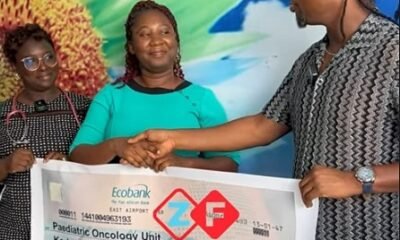News
1986 OAA launches 40th anniversary legacy project
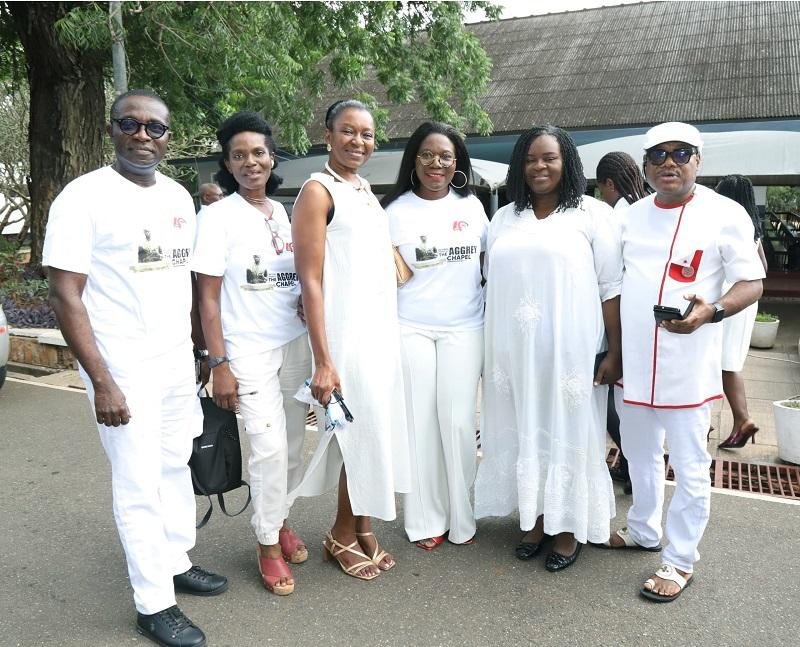
THE 1986 Old Achimotan Association (OAA) has launched its 40th anniversary legacy project with a firm commitment to give back to their alma mater while honouring the clergy who guided their spiritual journey.
The colourful ceremony, held on Sunday, September 28, at the Aggrey Chapel, brought together Old Achimotans across generations, including the 1976 and 2001 year groups, the school’s leadership, clergy, students, and well-wishers.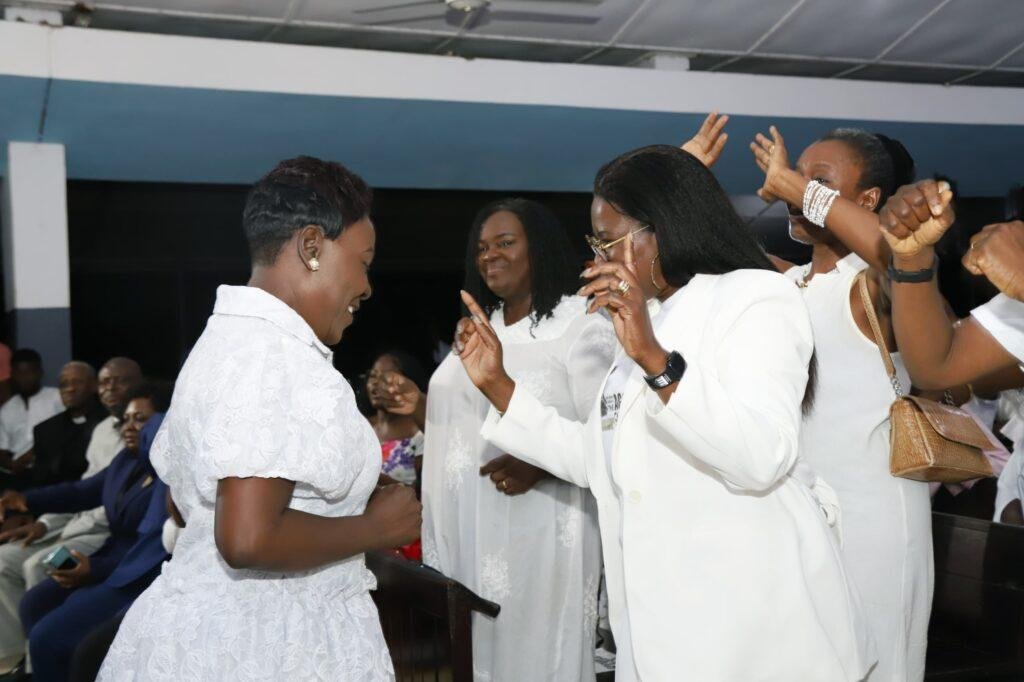
The event dubbed “an evening of hymns, psalms and worship was held under the theme “Honouring our clergy.”
The group would refurbish the Aggrey Chapel, a spiritual landmark at the heart of the school. Other initiatives include a donation to the Achimota School endowment fund, a cadet career training and mentorship programme, and an environmental greening campaign to promote sustainability on campus.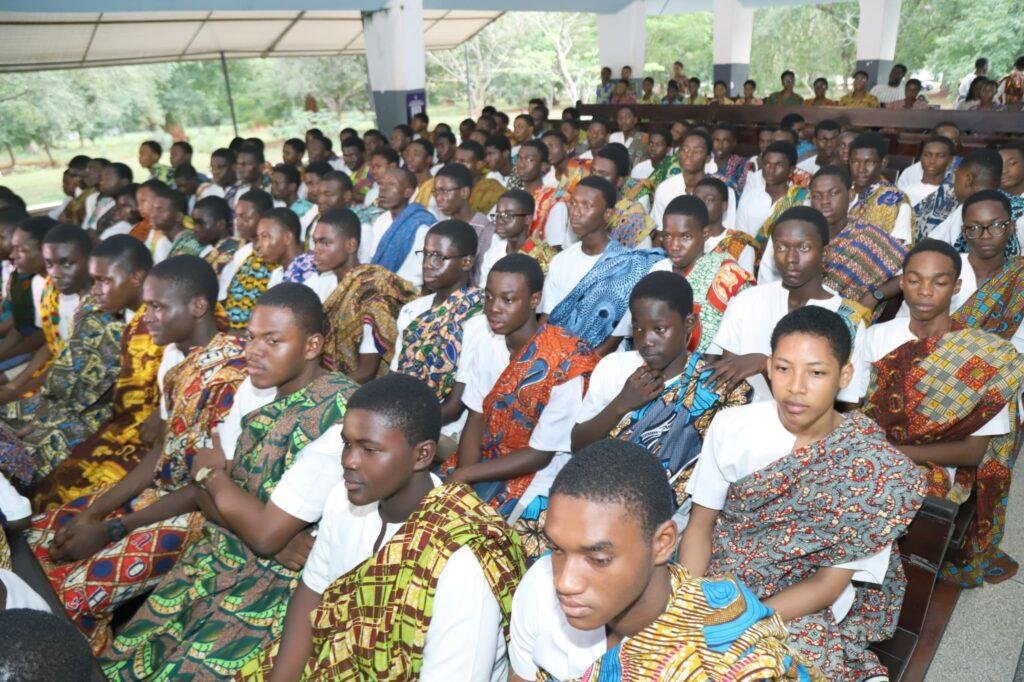
President of the 1986 Year Group, Ms Sena Siaw-Boateng, said the milestone celebration was not only about reconnecting but also about leaving a legacy that reflects the enduring values of Achimota.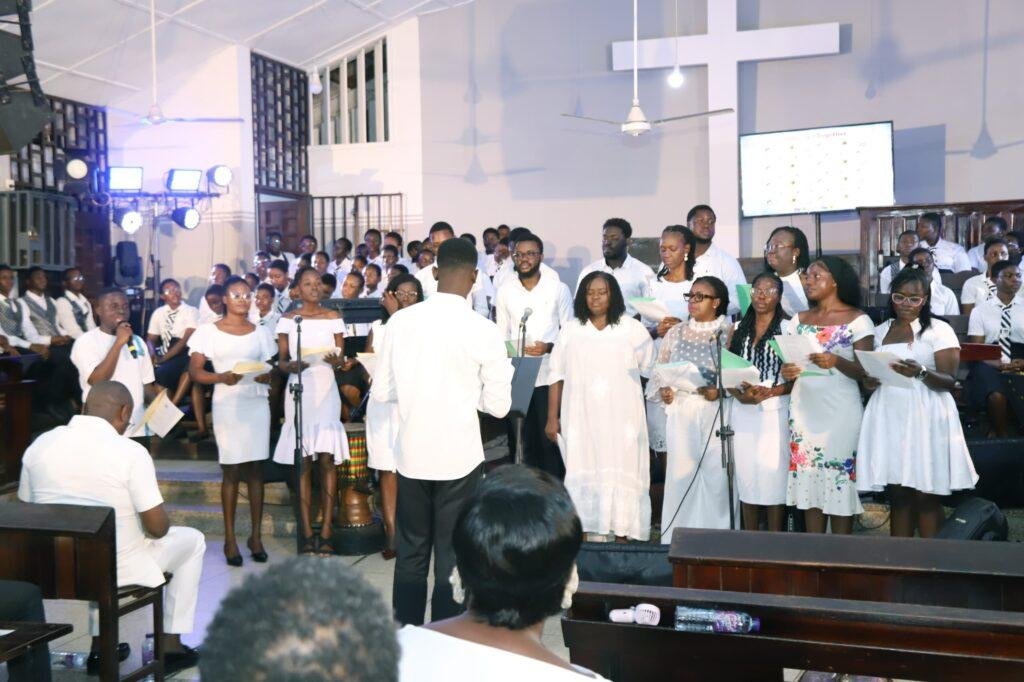
“You were more than priests, pastors, or chaplains to us, you were our shepherds, counsellors, and second parents. Because of your dedication, we learned that true education is not only of the mind, but also of the heart and soul,” she said.
She also expressed gratitude to the school’s leadership, the OAA Projects Committee, co-celebrating year groups, and families of departed colleagues for their unwavering support in bringing the vision to life.
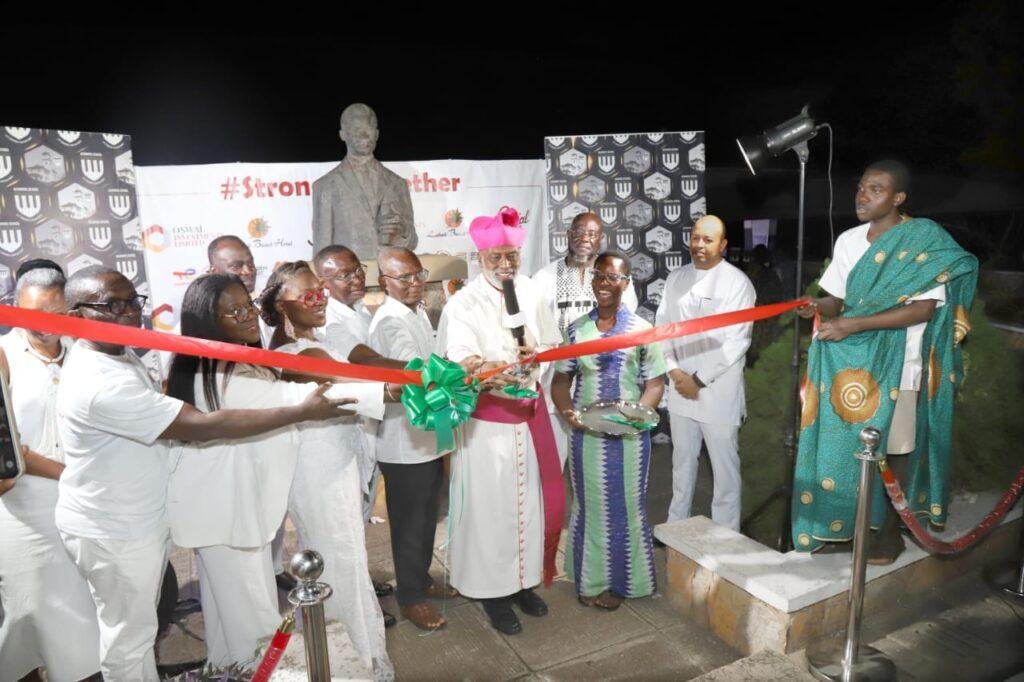
Dr Ernest Ofori Sarpong, hailed the 1986 year group’s commitment to service and called on old students across generations to emulate the gesture.
“The Legacy Project is not merely about brick and mortar, it is a symbol, a bridge between generations,” he said.
He urged current students to take inspiration from the project, noting that Achimota’s enduring mission of unity, discipline, and service requires collective responsibility.
The programme was interspersed with music from the Aggrey Chapel Choir, gospel artist Perez Musik, and the 1986 anniversary choir and friends.
By Esinam Jemima Kuatsinu
Join our WhatsApp Channel now!
https://whatsapp.com/channel/0029VbBElzjInlqHhl1aTU27
Entertainment
Kwaisey Pee honours promise, donates GHC50,000 to Korle-Bu Paediatric Oncology Unit
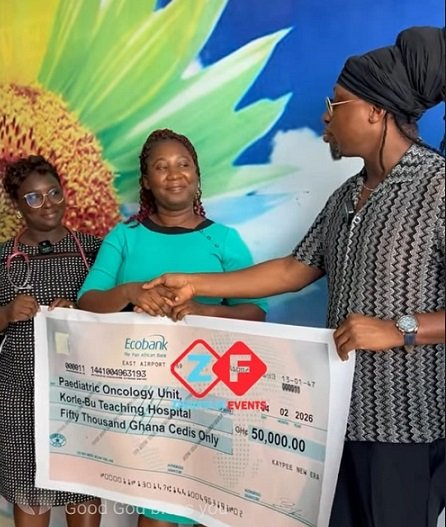
Ghanaian music icon, Akwasi Poku Addae, known in Showbiz circles as Kwaisey Pee has honoured his promise to children suffering from cancer.
Ahead of his 25th anniversary event held at the D’ Icon Event Centre at East Legon last year, he made a promise to donate some funds to children suffering from cancer.
True to his word, the musician has recently made a donation of GHC50,000 to the Paediatric Oncology Unit of the Korle-Bu Teaching Hospital.
He told the Ghanaian Times that children are so dear to him, and was optimistic the support would go a long way too impact lives.
The music dynamo also promised that the gesture will not be the last,” it will be a continuous feature from me.”
He also called on Ghanaians home and abroad to lend a helping hand to children suffering from cancer.
According to him, children with cancer have many needs, and a helping hands will go a long way ease the suffering.
“Cancer treatment is very expensive, and leaving that to parents of the children alone, will be a huge burden, with support from you and myself, we can make some changes in other people’s lives,” he concluded.
By Edem Mensah-Tsotorme
News
Dickson Kyere Duah, Kwadwo Poku clash over government funding for World Cup participation

A disagreement has emerged between Member of Parliament for Berekum West, Dickson Kyere-Duah, and energy consultant Kwadwo Poku over government funding for Ghana’s participation in the 2026 FIFA World Cup.
The debate centred on government’s decision to budget about 13 million dollars to support the national team, even though FIFA is expected to provide an appearance fee of about 10.5 million dollars if Ghana qualifies for the tournament.
During the discussion on Joys news , Mr Poku questioned why the government should allocate such an amount when FIFA already provides funds to participating countries.
According to him, the appearance fee alone should help cover some of the country’s expenses.
He argued that if FIFA is giving Ghana 10.5 million dollars simply for qualifying for the tournament, it raises questions about the need for the government to appropriate additional funds.
Mr Kyere Duah, however, explained that the government’s allocation was part of advance planning captured in the national budget even before the final qualification results were known.
He noted that the budget for the tournament period was prepared in November 2025, when it was not certain that Ghana would qualify.
He stressed that budgeting does not automatically mean the entire amount will be spent.
According to him, the funds are meant to prepare the team from the start of the competition period until the end of the tournament.
Mr Kyere Duah explained that if the team exits the tournament early, the full amount allocated in the budget will not be used.
Mr Poku maintained that FIFA already provides financial support to teams for participating in the World Cup and insisted that the government must clearly justify additional spending.
The discussion extended to the role of the Ghana Football Association in managing the national teams.
Mr Poku described the association as a private institution and argued that FIFA also operates as a private body that does not allow government interference.
He explained that FIFA provides funds to teams to support their preparation and participation in the tournament.
Mr Kyere Duah, however, maintained that national teams represent the country and require government support to operate effectively.
By: Jacob Aggrey

 News1 week ago
News1 week agoFinance Minister outlines new gold policies to boost reserves and curb smuggling

 News1 week ago
News1 week agoSam George launches the 2026 Meteorological Awareness Month; presents the 2026 seasonal forecast for southern Ghana

 Hot!1 week ago
Hot!1 week agoBreaking: Footballer who killed two children in Abesim handed lifetime sentence

